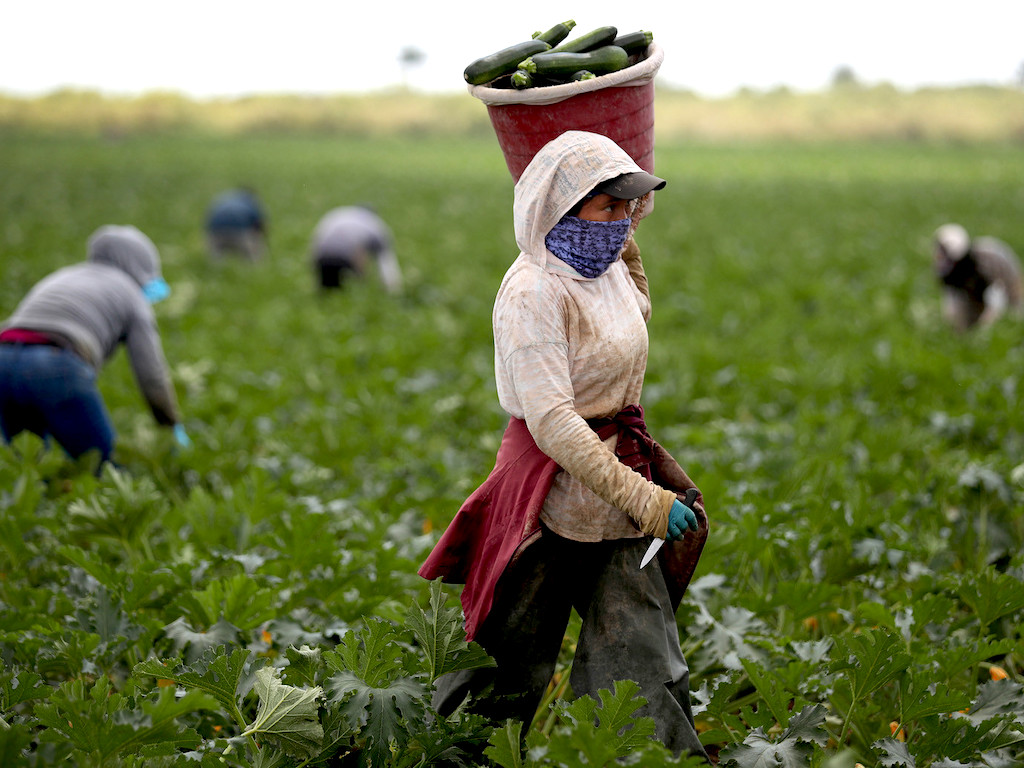3 Mins Read
Food and farm workers have been called heroic essential workers amidst the pandemic, yet they continue to lack the protections they deserve to ensure their workplace safety. Leaving them in danger not only threatens their physical health, it threatens food security as a whole and we must step up to provide safety for those performing the most critical tasks that society relies on.
In a recent op-ed published on the Guardian, food systems researcher Vera Chang and environmental and medical anthropologist Seth Holmes documented how farm and food workers are facing an “agonising choice” in the face of the current Covid-19 pandemic. Either they stay at home and go for weeks and potentially months with no income, or they continue working and risk infection.
While the authors were referring to food workers in the United States, the story is consistent across much of the world. Relief measures and stimulus packages have typically excluded food workers, leaving many in the sector without basic personal protective equipment such as face masks and hand sanitisers. Working conditions often mean physical distancing is impossible, and those continuing to perform their duties – which helps maintain critical global food supplies – go without hazard pay.
In the United States, a worker at a Tyson facility in Arkansas described her labour conditions as shoulder-to-shoulder. Farmworkers who go into harvest sites have to travel on packed buses, and upon arrival they share cramped bedrooms with little access to sanitation. Despite Congress’ historic US$2 trillion stimulus package making headlines, food workers are specifically left out of this state aid.
“As much of the country shelters-in-place, we put our lowest-paid workers at the frontlines of battle with no support,” writes Chang and Holmes.
While Singapore has garnered praise for its contact tracing approach that has kept infection rates low for the past months, officials are now struggling to contain a sudden spike in Covid-19 cases due to overlooking the over-cramped dormitory conditions of many migrant workers who perform essential duties in the city, though it’s worth nothing that many of these workers are employed in the construction industry rather than the food sector.
But we aren’t just putting the world’s essential farmworkers and labourers across the global food supply chain at risk. By undercutting support for this vulnerable sector, we are undercutting the collective health of society and the economy.
“Danger to food workers is a danger for us all. And some of them are starting to die while working to feed us,” said Chang and Homes.
We have a moral responsibility to do better to support these workers who provide us with our daily needs, yet are not able to have basic access to physical distancing and safety protections.
And with peak harvest about to begin in many regions of the world, we are risking an unprecedented global food shortage crisis – the consequences of our inability to protect food workers will bite all of us.
We must also learn from this pandemic. Once we overcome this global crisis, a more robust food system must be designed – one that is not only plant-centric and more sustainable for the planet, but also one that prioritises the very people who keep the system running.
Read our earlier coverage of Covid-19 here.
Lead image courtesy of Joe Raedle / Getty Images.




